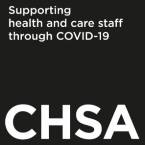Trauma
Are you suffering with possible symptoms of trauma?
What is psychological trauma?
Trauma is a reaction to any event to which a person is connected that:
- is unexpected
- is outside their usual range of human experience
- involves some form of loss, injury, threat of injury/death (whether actual or perceived.)
Types of Trauma
- Childhood adverse events i.e. abuse, neglect
- Single traumatic event (maybe life threatening) such as road traffic accident, assault, terrorist incident, child birth trauma
- Multiple trauma over time such as death of patients/residents, several serious illnesses/injuries, domestic violence/abuse
Trauma Symptoms
In response to extremely stressful life experiences there are difficulties that individuals sometimes have after trauma. Some of the most common trauma symptoms can include:
- Flashbacks or nightmares
- repetitive and distressing images or sensations
- depression/anxiety
- irritability or angry outbursts
- panic attacks
- feeling numb, spacing out or dissociating
- problems sleeping or relaxing
- difficulty concentrating
- negative thoughts such as shame, guilt, self-loathing, self-blame or self-doubt
- physical sensations such as pain, sweating, stomach pain, chest pain, feeling sick or trembling
- self-harming or destructive behaviour, such as drug misuse or alcohol misuse
- suicidal thoughts or feelings
It may help to know that:
- Most people experience trauma in their lifetime
- Healing from trauma is a natural process
- You are not weak or defective if you suffer with symptoms. They are normal reactions to an abnormal situation
How do I recover from trauma?
The natural healing from trauma can take several weeks after an incident. Symptoms are usually expected to subside and resolve themselves in time.
If you are still having symptoms after 4 weeks then speak to your GP about seeking medical advice or specialist trauma support.
If you have been diagnosed with Post-Traumatic Stress Disorder (PTSD), then specialist psychological support such as Eye Movement Desensitisation and Reprocessing (EMDR) or Trauma Focused Cognitive Behavioural Therapy (TFCBT) is needed.
To read more about how trauma might effect you, see Effects of Trauma on the Mind.org website.
Counselling
Supporting your mental wellbeing
COVID-19 and your mental wellbeing resources
Looking after those who care for others
This recording is an edited version of a self-help session designed and delivered by a group of care home union reps and the RCN Member Support Services. It's designed to be used by RCN reps and individuals wishing to know more about psychological trauma.
Sarah Murphy and Tanja Koch, Clinical and Operational leads of the RCN Counselling Service, share key information about trauma which will help you recognise trauma reactions in yourself and others. They also talk about what it takes to recover from trauma, provide self-help tips, and explore what you can do to support others.






